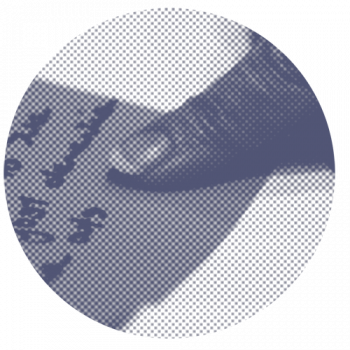Dementia Connect
How can we help people with a dementia be creative in the everyday?
At the moment, there is no cure for dementia, so maintaining quality of life and well-being has become a core pillar of dementia care. Here it is significant that people’s artistic, imaginative, and emotional capacities can remain strong for years after dementia onset. A growing body of evidence now suggests that engaging with arts and cultural activities may offset dementia-related degeneration and deliver important wellbeing outcomes. For an arts, health, and wellbeing agenda to succeed, however, it must parallel the complex realities of living with a dementia diagnosis today. This means opening up notions of ‘creativity’; tackling inequalities in access and representation; blending a creativity agenda with models of care and community life; and exploring how traditional practices and emerging technologies might broaden and deepen creative experiences.
A Wicked Problem
A classic wicked problem, a clear shared interest – helping those with a dementia live well through participation in creative activities – tests the ability of different arts, research, community, and professional health bodies to work together in partnership. A clumsy solution might seek to engage the strengths of each in prototyping new new ideas away from the barriers of conventional working silos. With the support of The University of the West of England and Arts and Humanities Research Council funding, Tim Senior and Tom Rowlands (supersum co-founders) designed and setup Dementia Connect – a cross-sector creative hub based at FACT Liverpool. The Hub supported the creation of new cross-sector projects, and led to an ‘Open Ecosystem Innovation’ model for delivering community-embedded arts participation. This work preceded supersum.
Our Approach
``Dementia Connect support has enabled us to bring the views and ideas of people living with dementia to local organisations with the means to improve their quality of life”
Dr. Elaine McNeil, Liverpool John Moores University

0 Creative Vouchers
0 Lab Participants
0 Project Participants
0 Activity Academy
Tackling Care Inequality
A Creative Voucher project
For those living in care, a lack of cultural sensitivity in care provision can have a very negative impact. A cause of upset amongst service users from different cultural backgrounds concerns food culture. By overlooking minority cultures in food preparation, care providers risk excluding those in their care. This project addressed food cultural sensitivity in care services by turning to the experiences and culinary knowledge of those in care. Over a series of workshops, the project team worked with participants from Black, Asian, and Minority Ethnic communities, witnessing their personal testimonies in their own terms and preferred language. Together, they created food culture guidelines for the care sector, outlining the preparation of nutritious and culturally appropriate meals, the importance of participation in food services, and the value of sharing a mealtime with others.
Di Burbidge (Chinese Wellbeing)
Reihana Bashir (Mary Seacole house)
Jacqui Walker (Back-to-life Liverpool)
Breege McDaid (Irish Community Care)
Paul Thomas (DEEP network)
Our Projects
Project Partners



